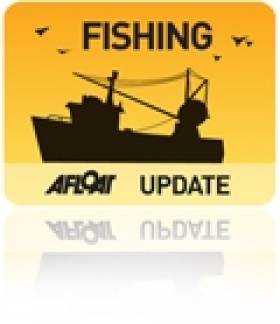Displaying items by tag: Boy John
Following inspection of the vessel's papers, the vessel was detained and was escorted to Rosslare at approximately 1am on the morning of Friday 5th August. Sea-Fisheries Protection Officers undertook an investigation and valuation of the catch and fishing gears onboard the vessel. Legal proceedings involving An Garda Siochana and the SFPA were initiated on the 5th August in Rosslare against the Master of the vessel.
Peter Whelan, Chairman of the SFPA said: "The illegal landing of fish only serves to depress the price the legitimate fisherman should be achieving for fish. It also distorts the markets and only serves to benefit those involved in illegal fishing activity. Licensing and authorisation of fishing vessels is a basic perquisite of EU and Irish law. The role of the SFPA supports profitable, sustainable, managed fisheries at a time when the fishing industry faces many challenges. Effective monitoring and control systems safe-guards the good reputation of Irish food producers in the international marketplace and protects Irish taxpayer from the threat of large fines being imposed when non-compliances with the Common Fisheries Policy are encountered."






























































